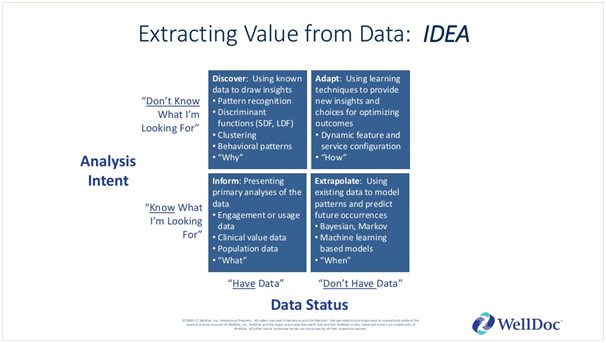What would you consider as the biggest challenge faced by CDOs today?
It’s very difficult to say the biggest but there’s a few, I think. They’re all pretty big. I think one of them is really the changing landscape in technology and the growing demand for the use of data. There is lots of pressure on the CDOs to manage these expectations and how to enable that in reality. The second challenge goes into the privacy, security and governance side. This is very visible at the moment; as an organisation, if you want to leverage data usage, you really have to put in place governance structure in place. This is the second, quite big challenge. Third is Operational – you have to build the infrastructure, the requirements, the talent, the team, some of the legacy systems to make things operational and working.
How do you think Big Data will impact your industry?
Hugely. I think it is an opportunity, in my opinion. Some people may see it as a threat or an additional pressure but, as a Telco, the opportunity is huge. The consumer adoption of smart phones and every other technology going into sensors provides a great opportunity for unparalleled insights. There is a challenge to the existing business models and services we provide – how do we keep up and create more innovative things. We have to change the mind-set to really capitalise on this opportunity.
In your opinion, do people, in general, in your organization appreciate the value of data in decision-making? What do you think can be done to improve the situation?
I think traditionally as an industry we have lots of data, so there is appreciation within the organisation, in general, as there are traditional, familiar uses of data. However, there are limitations. The traditional use of analytics is product driven – very classic way of using analytics. So, for example, if somebody looked at ‘pre-paid’, they wouldn’t look at ‘post-paid’ or if they were looking at television, they wouldn’t care about broadband. That’s the traditional way – it’s kind of limited. In terms of improving – we need to look at a new way of incorporating data sources and understanding people holistically, expand data sources to be more social and open – combined together, would be the real value in decision-making. There’s still a long way to go.
How would you explain the role of a CDO to a fresh graduate?
This is not an easy one. Every business has got a consumer to serve and that could be a normal person like you and I or it could be an organisation. The CDO is the centre of our business, the core to link together all different parts of service that we’re providing to our customers, they are all driven by data. Because this is what you service, what goes out and people use it, and it comes in and data is connecting the whole part. So, the CDO, I would say has 2 roles – 1) how do we manage and safeguard this data that flows in and out of the organisation and connects us to our consumers and 2) is to use this data for innovation, to improve our service, improve the personalisation. So, the CDO, in my opinion, plays these two roles. I don’t know, though, whether a fresh graduate would understand that!
How do you see the role of CDO evolving in the next 3-5 years?
I think it will go with the maturity of data and the use of data in decision-making. So, the classic maturity level for the use of data is, first of all, as a source of information. So at this stage, the CDO role is about making the information available, the governance and definition of it. So the role of the CDO is to enable the data to be used by the business. The second stage, I would say, is to actually use the data for decision-making – but if you want to use it for decision-making, then the role becomes about ensuring consistency in sharing of data, that you can close the loop and ensuring appropriate legacy technology. The third and highest stage of maturity is to use the data for competitive advantage. So, if you get to that stage, the CDO is encouraging innovation and advanced understanding and monetisation of data. I think the role will evolve from enabling to decision making to becoming the source of innovation. New technology will be rapidly developing too, based on where we’re at today. So, the growth rate of the CDO role will be a lot greater than what we’ve previously seen too.
Putting up a credible data analytics infrastructure is always a cost issue? How would you justify this to your company’s CEO/CFO?
That’s always tricky. So, I think infrastructure is a cost issue but I think, also for me, it’s yes and no. Infrastructure today can be open source so it isn’t always very costly. Again, if we look at it from an enterprise perspective, it will be very expensive. There is a case of proving the value before building the infrastructure. You will be able to prove a good use case with open source and cheap options, before proving the value points for further development. The CFO will need to see projections, value propositions and how realistic it is to go from where we are today and where we want to be. But open source can provide a very good business case for enterprise level infrastructure. But before it was very difficult to do it, especially without cloud solutions.





